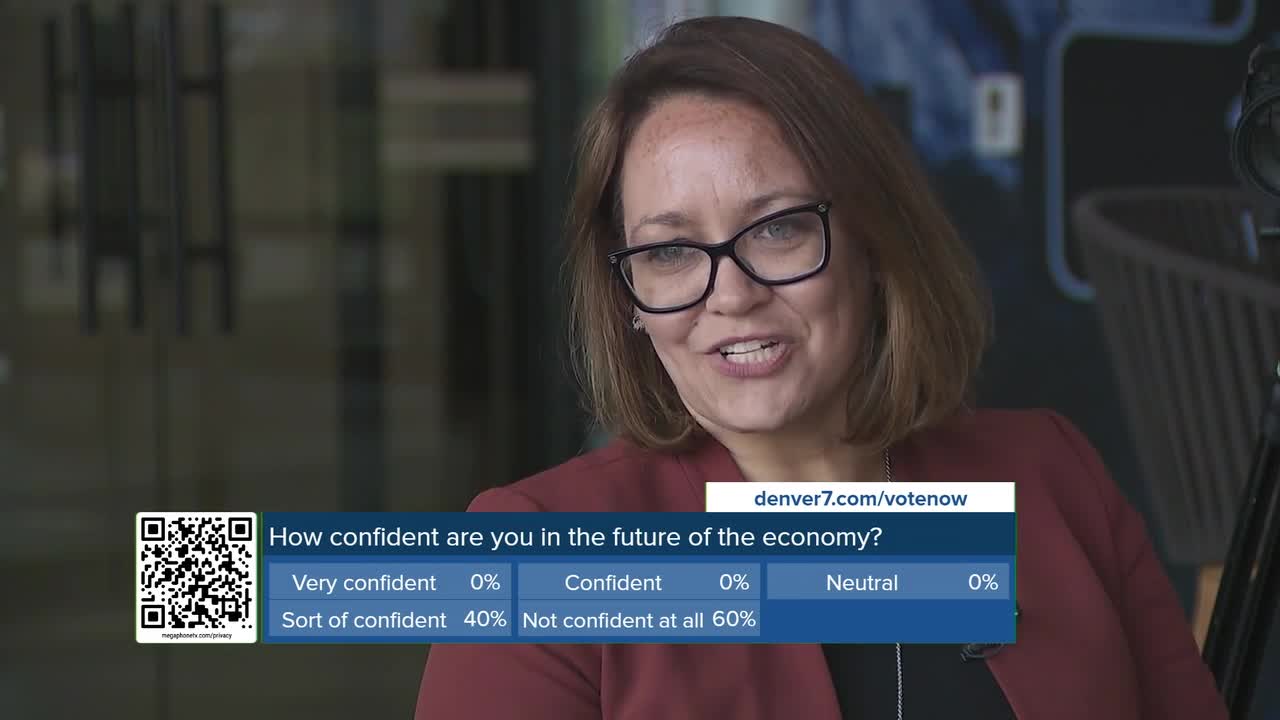DENVER — Consumer confidence in the economy fell in June according to The Conference Board’s monthly Consumer Confidence Survey released Tuesday.
It’s the fifth time in the last six months the report has shown a decline and cuts nearly half of the gains from May’s report.
The survey accounts for business conditions, inflation and jobs reports.
What’s really concerning though, according to experts, is the expectations index — which looks at short-term outlook. That number fell to 69, well below the 80 threshold that typically signals an impending recession.
“Consumers' write-in responses revealed little change since May in the top issues impacting their views of the economy,” Stephanie Guichard, senior economist at The Conference Board, said. “Tariffs remained on top of consumers’ minds and were frequently associated with concerns about their negative impacts on the economy and prices.”
The survey results paint a different picture than recent reports from the U.S. Bureau of Labor Statistics.
Monthly jobs reports have remained fairly strong, unemployment has hovered around 4%, and inflation continues to creep closer to the Federal Reserve’s target rate of 2%.
“The US economy is still adding jobs, and that's fantastic, right? But that job growth is starting to slow, and a lot of people are saying it's really hard to find another job,” Meredith Moon, director of research at the Institute for Evidence-Based Policymaking — based in Denver — said. “So, again, with a lot of uncertainty in the economy right now, everyone's just kind of standing pat and not taking any action.”
Moon said one of the reasons for the dichotomy in sentiment and data is the fact that coming into President Trump's second term, the expectations were higher than the reality that has come to fruition.
Many people expected loosened regulations, a focus on free-market trade and stock market gains. For the first six months of the president’s second tenure, things have shaken out differently for many Americans.
Moon also notes people can be doing objectively well financially, while feeling like they’re struggling.
“The savings rate has gone up since December in the United States, which is typically an indicator of, you know, we don't feel confident in the economy, we're going to stop spending and start saving, because we don't know what's going to happen,” Moon said. “So, you know, I think it's valid for consumers to feel that expectations are lower in the future because, you know, if you look back to December and November, I think there was a lot of optimism about the economy.”
It’s important to note June’s fall in confidence was calculated using data gathered before the U.S. became involved in the conflict between Israel and Iran.
The Conference Board reports references to geopolitics and social unrest increased in June’s report; so did interest rates.
57% of Americans said they expect interest rates to rise in coming months, the highest share of respondents since October 2023.





